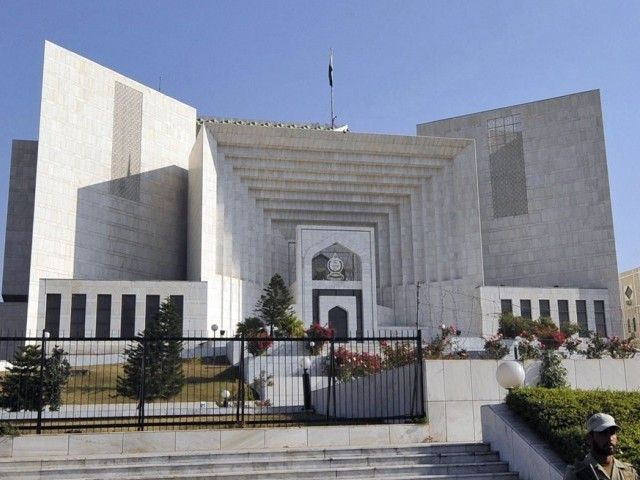SC takes exception over refusal of IHC judge to grant bail on bailable offences
The apex court lamented that the IHC judge not only misread the law but also misapplied them.

Admitting the bail applications of two accused, Alam Zeb and Shakeel Khan in a drug case, the top court has directed its office to bring this order to the notice of Chief Justice of Pakistan (CJP) as well as IHC’s chief justice.
A two judge bench of the apex court, headed by Justice Asif Seed Khosa found, “the petitioners (accused persons) had been refused bail by the learned judge in chamber of the Islamabad High Court on the basis of grounds which were neither reasonable nor legally tenable and that the case against the petitioners is a case calling for further inquiry into their guilt within the purview of sub section (2) of section 497 CrPC”
Last month, IHC's Justice Shaukat Aziz Siddiqui had refused to grant bail to the two accused observing that, although the offences with which the accused were charged was bailable, but they were heinous in nature and fatal to the society, thus refusing bail to the petitioners.
The apex court while issuing the seven-page order observed that unfortunately each one of considerations weighed by the Justice Siddiqui were either irrelevant or were vitiated by misunderstanding of the facts of the case or misapplication of law.
The copy of the SC’s order is available with The Express Tribune.
On Thursday, Deputy Attorney General Imranul Haq appeared on behalf of state in this case.
The bench also noticed that it was the same IHCs’ judge who had initially ordered and caused the arrest of present petitioners (accused persons) in connection with this case and thereafter he had himself sat in the same matter as a judge for the purposes of refusing bail to the petitioners and that too by exercising his discretion in this matter.
“Such maligning of the roles of an investigator ad a judge by the learned judge in chamber has been found by us to be sufficient to raise many an eyebrow as such duplicity of roles neither behoved the learned judge in chamber nor suited the exalted office of a judge that he adorns”, the order says.
The court also lamented that it had not been realised or appreciated by the justice Siddiqui that the system of coroners, investigating magistrates or judicial investigators in vogue in some other countries is not a part of our justice system and separation of the judiciary from the executive is a cornerstone of our constitutional dispensation.
“If the learned judge in chamber had himself ordered and caused the arrest of the present petitioners then minimum standards of justice required that his lordship ought not to have taken upon himself to sit in judgment over the matter so as to exercise his discretion for the purposes of refusing bails to the petitioners”
The court said that the IHC judge misread the record, while observing that a raid had been conducted on the house of Alam Zeb and some spurious drugs were recovered during the investigation of the present criminal case, while the record shows that the raid and recovery were in connection with a different criminal case and Zeb was granted bail in it.
The bench has also expressed its surprise that the IHC’s judges did not grant bail just because some co-accused of the petitioners were gangsters involved in similar cases.
It observed that in the social context, a man is known by the company he keeps but such social consideration has never been recognised as a legal consideration for denying a legal relief to a person if it is otherwise due.
“Keeping bad company may be socially reprehensible but that can hardly be treated as a legal disqualification.”
Lamenting the fact that the justice Siddiqui had not only misread the law but also misapplied them, the court said, if the offenses involved were bailable than IHC’s judge could not termed them as heinous and fatal for society because the legislature had not treated them as such by declaring them as bailable offences.



















COMMENTS
Comments are moderated and generally will be posted if they are on-topic and not abusive.
For more information, please see our Comments FAQ